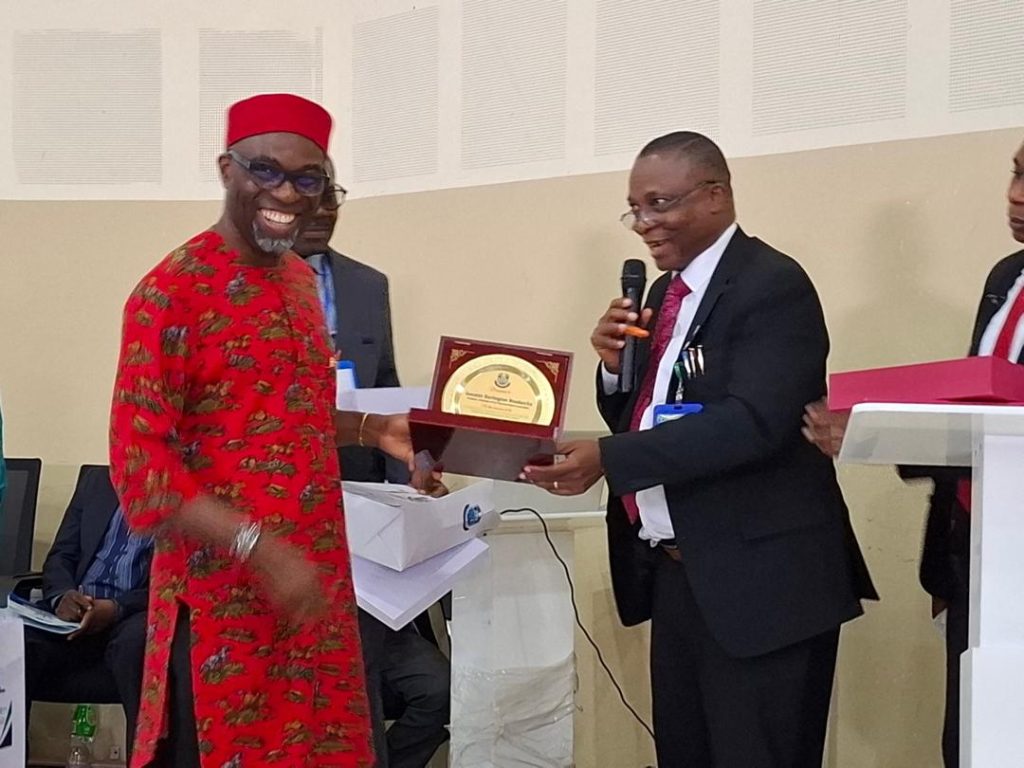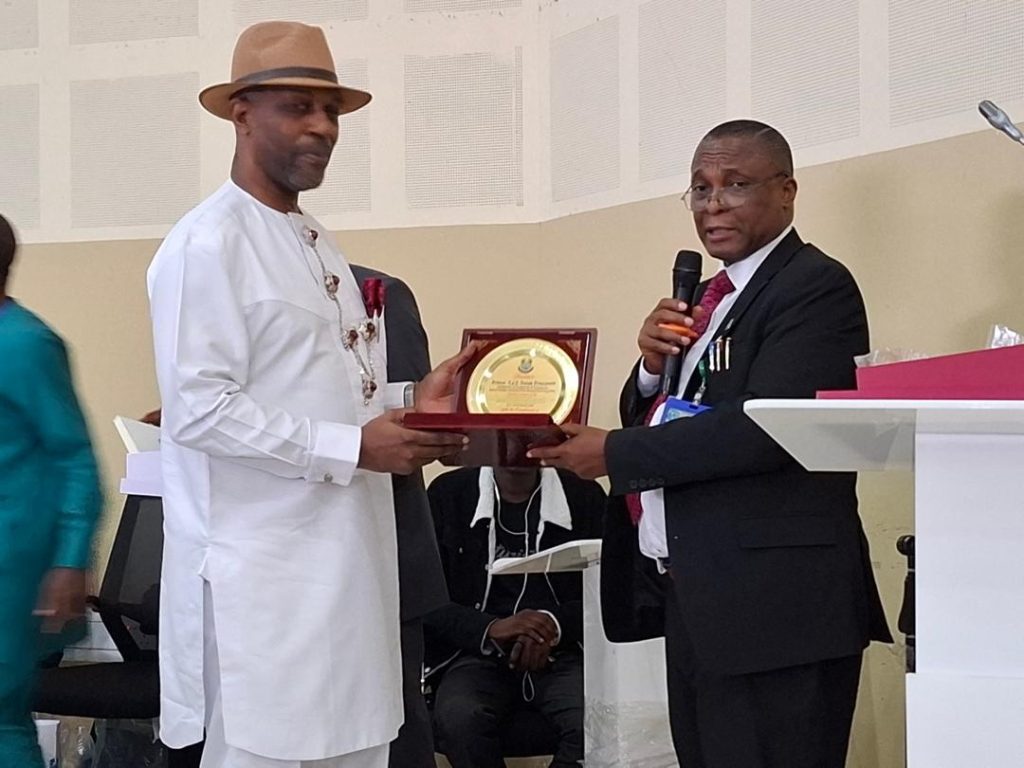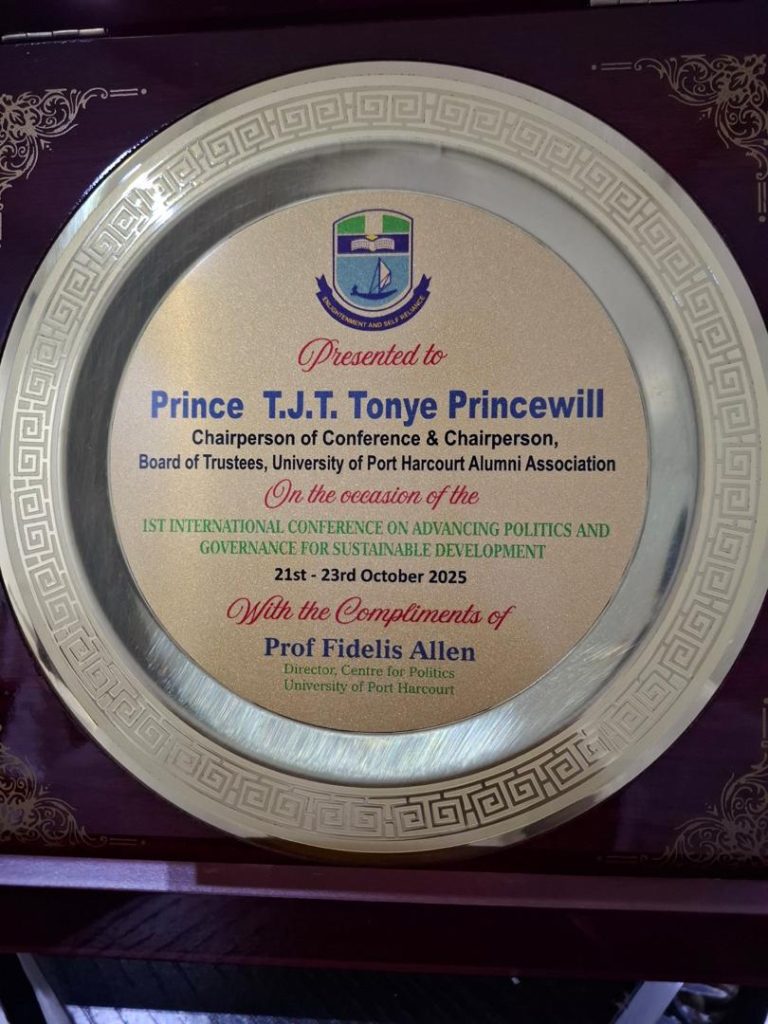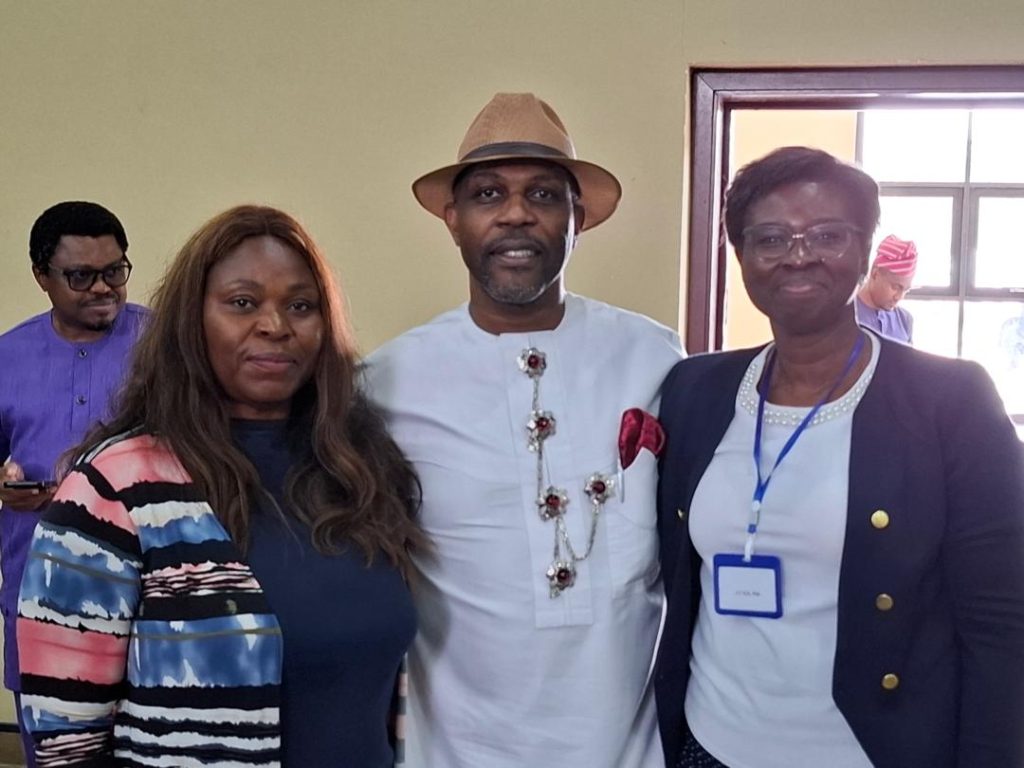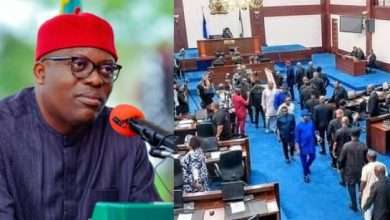
Port Harcourt, Nigeria—Abia State Governor, Dr. Alex Otti, and prominent business magnate, Prince Tonye Princewill, have issued a compelling joint appeal to African nations, urging a fundamental refocus on the advancement of politics and governance as the core mandate for sustainable development across the continent.
The distinguished duo addressed delegates on Tuesday in Port Harcourt at the opening of the inaugural international conference on “Advancing politics and governance for sustainable development,” an event organised by the Centre for Politics at the University of Port Harcourt. The conference, which drew participants from Nigeria, Ghana, South Africa, the United States, Canada, Australia, and the United Arab Emirates, operated under the timely theme: “Politics, Resource Governance and Sustainable Development in Africa.”
Speaking on behalf of Governor Otti, former Senate Minority Chief Whip, Senator Darlington Nwokocha, posited that development, at its simplest, is the “fair distribution of resources among the people.”
However, the Governor lamented the current political landscape, where the populace’s disillusionment is causing a “psychological withdraw[al] from the field.” He argued that this withdrawal inevitably creates an environment ripe for corruption and “system theft.”
“The sad truth is that almost at a point where majority of the populace seek to distance themselves from the political process, electing to play no part,” he noted, citing the “continued declining of voters’ turnout over successive elections, despite the rising cost of political mobilisation” as striking evidence of this democratic ailment.
In his remarks as Chairman of the conference, Prince Tonye Princewill provided a sharp critique of the narrow pursuit of prosperity, declaring that it is becoming “increasingly clear that sustainable development cannot be achieved by economic growth” alone.
Princewill delivered a potent distinction between power-seeking and service: “When politics is reduced as competition for power, rather than the platform for service, progress falters.” He insisted that true national elevation requires a strategic vision for governance.
“When governance becomes transactional, instead of transformational, development becomes a mirage,” he cautioned. He concluded with an uplifting vision: “When politics, however, is guided by vision and verifiable impacts and when governance is rooted in transparency, inclusion and accountability, nations rise.”
Earlier, Professor Fidelis Allen, Director of the Centre for Politics, underscored the urgency of the conference’s theme, stating that Africa’s future condition would be irrevocably determined by how effectively it manages its vital economic resources.
